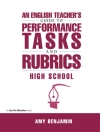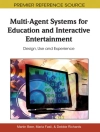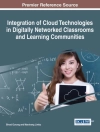Curriculum is a key issue for trainee teachers in the lifelong learning sector and a core component of most courses. It lies at the heart of the work of teachers and trainers, it shapes the programmes and courses that are taught, and dictates which students can have access to courses. What goes in to the curriculum is argued over by governments, employers, parents and educationalists. How the curriculum is funded can change on a yearly basis. Access to a particular curriculum can raise or diminish the life chances of the learners involved.
This book provides an accessible and up-to-date overview of the key issues surrounding the curriculum. Written for all those working towards QTLS, it provides examples and case studies from working FE colleges, adult education centres and work-based learning contexts as well as offering succinct summaries of key theories and debates relating to the curriculum. This fully revised Second Edition reflects the latest policies and thinking, has a new chapter on the implications of e-learning on curricula, and includes a full glossary of key terms and concepts.
Jonathan Tummons has worked in higher education since 1995. After six years as a lecturer in teacher education in the further education sector, in 2009 he took up his current post as senior lecturer in education at Teesside University where he is also research co-ordinator for education and a member of the management board for the Social Futures Institute, Teesside′s research centre for the social sciences.
Tabela de Conteúdo
Introduction
Defining the Curriculum
Conceptualizing the Curriculum
Shaping the Curriculum
Planning, Sequencing and Delivering the Curriculum
Evaluating the Curriculum
Curriculum, Learning and Knowledge
Boundary Crossing: Curriculum, Place and Time
The Accessible Curriculum
Sobre o autor
Jonathan Tummons is associate professor and deputy head of the School of Education at Durham University, UK. Jonathan researches, writes and teaches in a variety of fields relating to higher, further, and professional education, and his work has been consulted by qualification awarding bodies, further education colleges, medical educators, Ofsted, and the OECD.












